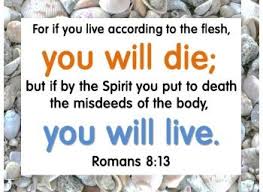 “Salvation by works” – good or bad?
“Salvation by works” – good or bad?
Since you will not find the term “works-based salvation” in the Bible, the phrase must be explained by the one who have chosen to use it. If it means something along the lines of “a requirement to work/show good fruit in order to be saved”, you will find that this in fact is what is taught in the Bible. James explains that faith without works is dead:
Jas. 214 What doth it profit, my brethren, though a man say he hath faith, and have not works? can faith save him? —17 Even so faith, if it hath not works, is DEAD, being alone. 20 But wilt thou know, O vain man, that FAITH WITHOUT WORKS IS DEAD?21 Was not Abraham our father justified by works, when he had offered Isaac his son upon the altar?22 Seest thou how faith wrought with his works, and by works was faith made perfect?23 And the scripture was fulfilled which saith, Abraham believed God, and it was imputed unto him for righteousness: and he was called the Friend of God.24 Ye see then how that BY WORKS A MAN IS JUSTIFIED, and NOT BY FAITH ONLY.
This is more than enough to show that faith+works is the formula to get saved. Not as in Islam where you can only hope that your good deeds will outrun the bad deeds, but still: faith alone will not save, and works alone will not save. A normal Christian life style will include both of these ingredients.
Matt. 5:16 Let YOUR light so shine before men, that they may see YOUR good works, and glorify your Father which is in heaven.
But is it not a bad thing to be “legalistic” or “pharisaical”? The problem with the Pharisees was not that they were too obedient to the law and too faithful to God, but that they added their own laws to God’s law and they focused on their appearance rather than their inside. They exalted themselves and they wanted to be seen as masters above the common man. They were also hypocrites!
Matt. 23:2 Saying The scribes and the Pharisees sit in Moses’ seat:3 All therefore whatsoever they bid you observe, that observe and do; but do not ye after their works: for they say, and do not.4 For they bind heavy burdens and grievous to be borne, and lay them on men’s shoulders; but they themselves will not move them with one of their fingers. —13 But woe unto you, scribes and Pharisees, hypocrites! for ye shut up the kingdom of heaven against men: for ye neither go in yourselves, neither suffer ye them that are entering to go in. —23 — ye pay tithe of mint and anise and cummin, and have omitted the weightier matters of the law, judgment, mercy, and faith: these ought ye to have done, and not to leave the other undone. —25 — for ye make clean the outside of the cup and of the platter, but within they are full of extortion and excess. —-27 — for ye are like unto whited sepulchres, which indeed appear beautiful outward, but are within full of dead men’s bones, and of all uncleanness.28 Even so ye also outwardly appear righteous unto men, but within ye are full of hypocrisy and iniquity.
It is a common misunderstanding that the Pharisees focused too much on being overly obedient to all of God’s laws when in reality they were sinners. We can for example read about them “within ye are full of hypocrisy and iniquity”. Jesus warned his listeners to not become like the Pharisees but to have a righteousness that exceeded the one of the Pharisees. Jesus even taught us to be perfect as our Father in heaven is perfect!
Matt. 5:19 Whosoever therefore shall break one of these least commandments, and shall teach men so, he shall be called the least in the kingdom of heaven: but whosoever shall do and teach them, the same shall be called great in the kingdom of heaven.20 For I say unto you, That except your righteousness shall exceed the righteousness of the scribes and Pharisees, ye shall in no case enter into the kingdom of heaven.—48 Be ye therefore perfect, even as your Father which is in heaven is perfect.
Believing in Jesus is of course the foundation of salvation, but we must not forget that also demons believe in tremble (Jas. 2:19). They are fully aware of that Jesus is the son of God and the Messiah. The point James is making is that faith without works is dead and he provides some examples of good deeds that a Christian can do – as in walk the talk. If we truly believe and also love Jesus, we will obey his commandments.
John 14:15 If ye love me, keep my commandments.
It is also important to be ready to “confess” Jesus before men, and the famous example is Peter who did the opposite by denying Jesus before men. Jesus had explained shortly before this happened (when conversing with Peter and the other disciples):
Matt. 10:33 — But whosoever shall deny me before men, him will I also deny before my Father which is in heaven.
Luke 12:8 Also I say unto you, Whosoever shall confess me before men, him shall the Son of man also confess before the angels of God:9 But he that denieth me before men shall be denied before the angels of God.
It does not sound like someone can be saved if Jesus denies this person before his Father in heaven! This includes Peter and the other disciples and Jesus was speaking precisely to Peter when he said: .
Matt. 26:34 — Verily I say unto thee, That this night, before the cock crow, thou shalt deny me thrice.35 Peter said unto him, Though I should die with thee, yet will I not deny thee. Likewise also said all the disciples. — 38 And he that taketh not his cross, and followeth after me, is not worthy of me.
Still, Peter did deny Jesus. Fortunately there is always a possibility to repent and to leave the sins behind, which was an offer applicable also for Peter. Taking up the cross and follow Jesus does not mean that you can combine this with sins. It is not possible to “repent daily” since this means that you sin daily, and daily repentance is no true repentance. Christians are expected to live in the light. A very fresh child of God (of “milk“) might have a lot to learn in the beginning, especially if this person has previously lived in much darkness, but there is no way we can be saved as “filthy rags” when we combine righteousness with unrighteousness. Our conscience will reveal our true intentions before God (Rom. 2) who always knows our predicaments and exactly what we are capable of. God is always willing to forgive a truly repentant heart, but there is no way we can continue in sin at the same time as being covered by the blood of Jesus!
But does not Paul teach that we are saved by faith alone in Eph. 2:8-9? Paul says that we are saved by grace but he does not say that we are saved unconditionally, nor that we can never lose our salvation no matter our conduct. He is trying to get the Jews to understand that we are not saved by obeying the many Jewish laws (613 in all) but that we are rather saved by faith in Jesus Christ. As we have learned; if we believe and love Jesus we obey his commandments.
Using the phrase “Jesus paid it all in full” is perhaps true depending on what is meant by this phrase (which is not found in the Bible). Jesus definitely paid a big price for us since he offered his own life, but the focus is on the majestic offer he made for all mankind rather than being an analogy of a money transaction.
What does grace mean? Among other things to live righteously here and now:
Titus 2:11 For the grace of God that bringeth salvation hath appeared to all men,12 Teaching us that, denying ungodliness and worldly lusts, we should live soberly, righteously, and godly, in this PRESENT world
Some might suggest that a true born again Christian WILL show good fruit! Yes, so if that is a fact then it is indeed true that doing good works is needed for salvation, just like James says. This does not mean that we can save ourselves because we do not have the authority to forgive sins. Only God does.
Other examples
Jesus:
Matt. 6:24 No man can serve two masters: for either he will hate the one, and love the other; or else he will hold to the one, and despise the other. Ye cannot serve God and mammon.
Matt. 7:21 Not every one that saith unto me, Lord, Lord, shall enter into the kingdom of heaven; but he that doeth the will of my Father which is in heaven.
John 15:6 If you do not remain in me, you are like a branch that is thrown away and withers; such branches are picked up, thrown into the fire and burned. —10 If you keep my commands, you will remain in my love, just as I have kept my Father’s commands and remain in his love. —14 You are my friends if you do what I command.
Paul:
Rom. 6:12 Let not sin therefore reign in your mortal body, that ye should obey it in the lusts thereof.—15 What then? shall we sin, because we are not under the law, but under grace? God forbid.16 Know ye not, that to whom ye yield yourselves servants to obey, his servants ye are to whom ye obey; whether of sin unto death, or of obedience unto righteousness? —23 For the wages of sin is death; but the gift of God is eternal life through Jesus Christ our Lord.
Rom. 8:1 There is therefore now no condemnation to them which are in Christ Jesus, who walk not after the flesh, but after the Spirit. —4 That the righteousness of the law might be fulfilled in us, who walk not after the flesh, but after the Spirit.5 For they that are after the flesh do mind the things of the flesh; but they that are after the Spirit the things of the Spirit.6 For to be carnally minded is death; but to be spiritually minded is life and peace —13 For if ye live after the flesh, ye shall die: but if ye through the Spirit do mortify the deeds of the body, ye shall live.14 For as many as are led by the Spirit of God, they are the sons of God.
Gal. 516 This I say then, Walk in the Spirit, and ye shall not fulfil the lust of the flesh.
John:
1 John 5:3 For this is the love of God, that we keep his commandments: and his commandments are not grievous.
1 John 3:7 Little children, let no man deceive you: he that DOETH righteousness is righteous, even as he is righteous.
Peter:
Acts 10:35 But in every nation he that feareth him, and worketh righteousness, is accepted with him.
1 Pet. 417 For the time is come that judgment must begin at the house of God: and if it first begin at us, what shall the end be of them that obey not the gospel of God?18 And if the righteous scarcely be saved, where shall the ungodly and the sinner appear?
Hebrews:
Hebr. 59 And being made perfect, he became the author of eternal salvation unto all them that obey him

 It is not possible to commit adultery unless you’re married
It is not possible to commit adultery unless you’re married












